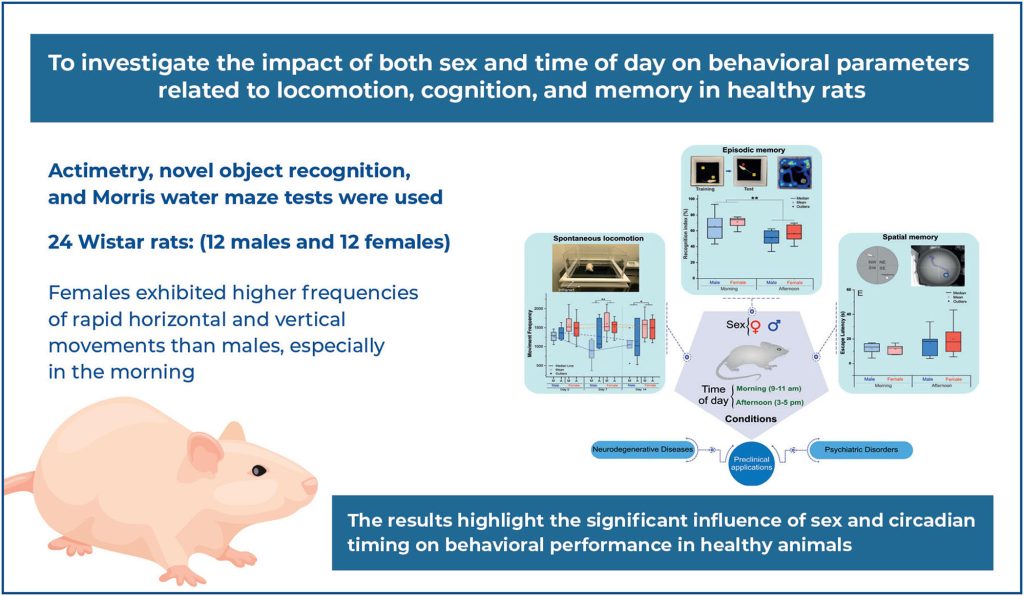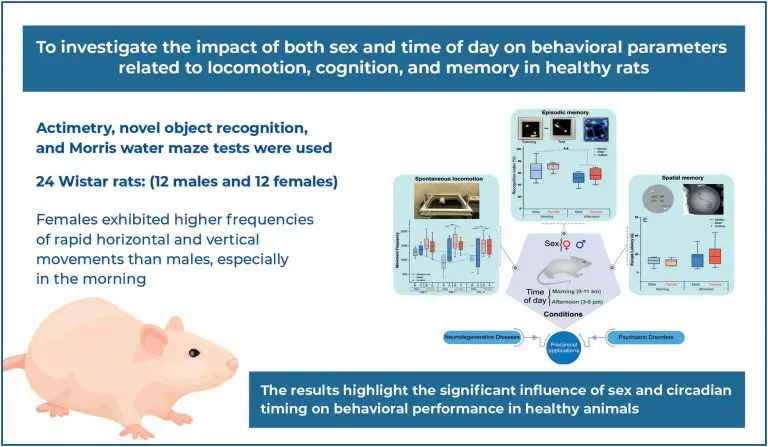einstein (São Paulo). 13/Oct/2025;23:eAO1614.
Assessing the impact of sex and circadian rhythms on rodent behavior: refining preclinical study designs
DOI: 10.31744/einstein_journal/2025AO1614
Highlights
■ Sex plays a crucial role in behavioral assessments of preclinical study designs.
■ Circadian rhythm influences episodic memory performance in rodent behavior.
■ Spatial memory exhibits fewer variations than locomotion and episodic memory.
■ Sex and the circadian cycle are critical factors in behavioral assessment.
ABSTRACT
Objective:
This study aimed to investigate the effects of sex and time of day on behavioral parameters in healthy rats, focusing on locomotion, cognition, and memory (both spatial and episodic).
Methods:
Twenty-four Wistar rats (12 males and 12 females) were divided into morning and afternoon groups. Behavioral tests included actimetry for spontaneous locomotion, novel object recognition test for episodic memory, and the Morris water maze test for spatial memory. Data were analyzed cross-sectionally and longitudinally, considering sex and time of day as variables. The evaluated parameters included fast and slow horizontal and vertical movements, recognition index, average speed, and quadrant preference in the Morris water maze.
Results:
Females exhibited higher frequencies of rapid horizontal and vertical movements than males, especially in the morning. Novel object recognition test results showed higher recognition index values in the morning, with females displaying greater exploration of novel objects, while the Morris water maze test results indicated that the time spent in the target quadrant was consistent across groups, but females demonstrated longer latencies in the afternoon.
Conclusion:
These results highlight the significant influence of sex and circadian timing on behavioral performance in healthy animals. These factors should be carefully considered when designing and interpreting preclinical behavioral studies to improve experimental consistency and data reproducibility.
[…]
154



